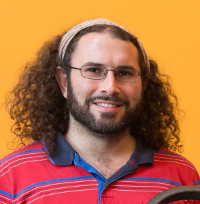
Rosman is a researcher who specialises in mobile intelligent autonomous systems. He is also a visiting lecturer at the School of Computer Science and Applied Mathematics at the University of the Witwatersrand, where he leads the Robotics, Autonomous Intelligence and Learning laboratory.
Rosman holds a PhD degree in informatics from the University of Edinburgh.Rosman’s research interests focus primarily on learning and decision-making in autonomous systems, in particular studying how learning can be accelerated through abstracting and generalising knowledge gained from solving previous problems. He also works in the area of skill and behaviour learning for robots.
A large part of his research focuses on transferring knowledge and constructing skill hierarchies in reinforcement learning, as well as extending these ideas to scenarios with rich sensory information and partial observability. He is also the chair of the Institute of Electrical and Electronics Engineers, South African joint chapter of Control Systems and Robotics and Automation.
Expertise: Robotics; Autonomous intelligence; Machine learning; Decision theory
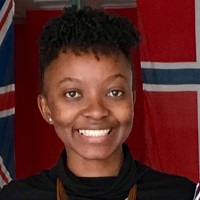
Dr. Neema Mduma is a computer scientist and a lecturer at the Nelson Mandela African Institution of Science and Technology. Neema is passionate about education especially girls, and during her PhD studies she developed a ML model called BakiShule which aims at preventing students from dropping out of school. Also, Neema organizes free trainings and workshops in secondary schools with the focus of inspiring and exposing girls to science and technology careers particularly data science, machine learning, and artificial intelligence. Neema’s efforts towards women in science has been recognized and she was given an award from the L’Oréal UNESCO as 20 young talents in Sub-Saharan Africa for the year 2020.
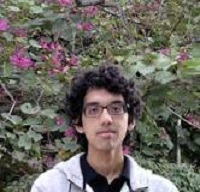
Dr. Kris is currently an Assistant Professor in the Department of Statistics at UW Madison. He studies statistical techniques for discovery, dimensionality reduction, and visual interaction in complex data, with a focus on climate change and the microbiome. He was previously a postdoc in humanitarian AI at Mila in Montreal, in Yoshua Bengio's group. I completed my PhD in Statistics at Stanford University, advised by Susan Holmes. My thesis was on Discovery and Visualization of Latent Structure with Applications to the Microbiome.
Dr. Kris seeks out simple strategies for making progress on real-world problems. He thinks that sharing reproducible workflows and accessible distillations is as important as making discoveries and proposing algorithms. My ideal researcher is an insightful scientist, as well as a skilled technician.

"Alexandre, Research Engineer at DeepMind working on Transfer and Continual learning problems in Reinforcement Learning and Language. Prior to DeepMind, Alexandre studied Mathematics & Computer Science at Ecole Polytechnique and Novosibirsk State University."

Dr. Ulrich is a co-founder of a crazy but wonderful movement to help strengthen machine learning in Africa, the Deep Learning Indaba. He is also currently working with DEEPMIND as a research scientist.
Dr. Ulrich is also honoured to wear the hat of extraordinary professor of applied mathematics at the University of Stellenbosch.

Lisa is a Research Engineer at DeepMind, where she develops machine learning methods for graph-structured data. Previously, she worked on quantization techniques at Google Research to accelerate and compress neural networks, and decrease their power usage. She also built computer vision algorithms at Orbital Insight to turn satellite imagery into maps, e.g. to help fight illegal deforestation. Lisa holds a BS and MS in Computer Science with a concentration in Artificial Intelligence from Stanford University.
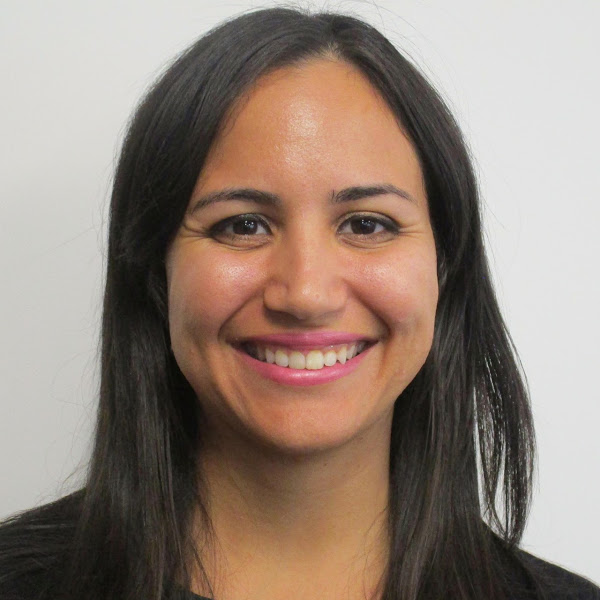
Amal Rannen-Triki obtained her PhD from KU Leuven where she worked on many topics including regularization, continual learning and specialised loss functions under the supervision of Matthew B. Blaschko. She is currently a research scientist at Deepmind and is interested in various subjects around deep learning including continual learning and understanding learning dynamics.

Mutembesa is a Project Head & Lead Researcher for an Adhoc Surveillance Project focusing on the smart-phone application tool kits that has been developed by the mcrops team to facilitate and provide automated diagnosis and improved vector & symptom measurement for Cassava viral diesease and pests it also looks at crowdsourced Crop health data through an Ad-hoc Surveillance system. Daniel is also an Instructor of Oracle & Database Systems Eng. at the Department for Professional Skills Development, Makerere University and an Assistant Tutor of Dr. Ernest Mwebaze at the Department of Computer Science College of Computing & information systems at the same University.

Dr. Ernest is very passionate about finding and implementing better, simpler and cost-effective solutions to address some of the prevailing problems in developing countries. Particularly interested in problems that can be solved by the application of computational techniques. As such his passion is research, particularly in the varied fields of Artificial Intelligence - specifically machine learning and computer vision and how to apply these in such a way as to obtain an optimal solution to real-world problems in developing countries.
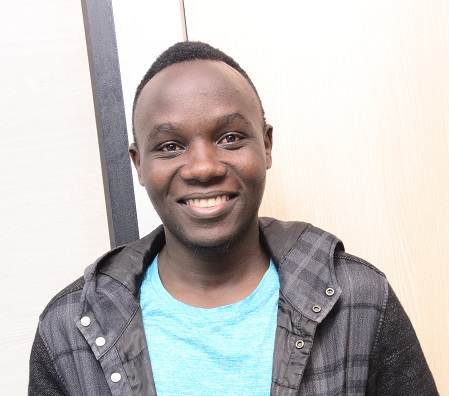
After completing his Software Engineering bachelor’s degree, Eric is currently working as a Research Asistant at Makerere University AI and Data Science Research Lab.
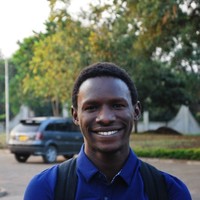
Mr. Benjamin Akera is a Software Engineer by profession. Currently a Machine Learning Engineer with the R&D team at Sama working mainly on Computer Vision. Previously, he was a research intern at Mila - Quebec AI Institute, working under the supervision of Prof. Yoshua Bengio on applied Machine Learning for climate change mitigation as well as humanitarian applications of AI. And before that, he worked with the Makerere University AI Lab in Uganda.
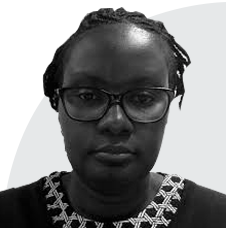
Dr. Joyce is a Lecturer in the Department of Computer Science at the School of Computing and Information Technology, Makerere University. She is also the scientific head of the Artificial Intelligence Lab and senior research fellow in the Software Systems Center at Makerere University.
Dr. Joyce obtained a PhD in Computer Science from Eindhoven University of Technology, Department of Mathematics and Computer Science in the Architecture of Information Systems group under the supervision of prof. dr. ir. W. M.P. van der Aalst and Dr. M. Westergaard. Dr. Joyce's PhD study involved investigating the use of business process simulation and process mining to analyse the resource perspective of business processes.

Her areas of interest are Data Science i.e. (Machine Learning and Statistics). Her most recent work is in Geospatial data analysis and visualization, distance measure, and radio mapping. Ms. Namanya holds a bachelor’s degree in Software Engineering at Makerere University.
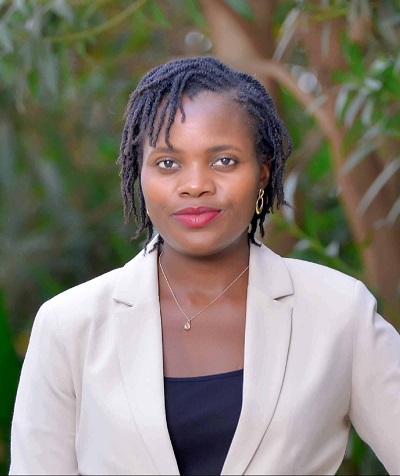
Godliver Owomugisha received her PhD in Computational intelligence & modeling of crop disease data in Africa from the University of Groningen in 2020. She received her Bachelors and Masters degree in Computer Science from Makerere University in 2011 and 2015 respectively. Godliver is a Senior Lecturer at Busitema University in the Department of Computer Engineering. Godliver is also part of the Makerere AI Research Group. Her research interests are in machine learning and computational intelligence in relation to solving real world problems.

Currently working for Zindi Africa, a new data science competition platform building the AI and machine learning ecosystem in Africa.

Irene is an Artificial Intelligence enthusiast, a PhD student at Rhodes University attached to Rhodes Artificial Intelligence Research Group where she is doing her research in Conservation AI. Her goal is to build skills for contributing towards a transition to sustainable practices in Research and Artificial Intelligence in the developing world.

Claire is currently part of the Artificial Intelligence and Data Science Research Lab Makerere University as a mentor and a research. She is also a lecturer at Uganda Technology and Management University. Her background is in computer science specializing in Artificial Intelligence and Network Security. She carries a great enthusiasm for data science and machine learning with a zeal of harnessing the potential of AI in improving service delivery.
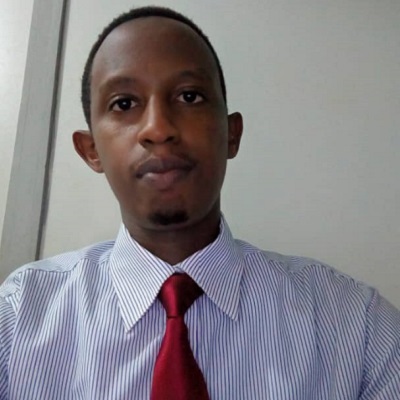
Allan Ninyesiga is the Head of Department of Computer Science and Engineering at Uganda Technology and Management University. His specialties are in Artificial Intelligence, Data Science and Computer Security. He has more than five years of ICT Specialist experience working with technology-oriented organizations.

Passionate business and technical leader with 15 years of multi-sector experience in oil and gas, finance, e-commerce and advertising, and marketing, I offer unique expertise in Data Science (Machine Learning and Data Engineering), Cloud Data Architecture, Data Strategy and Management, Digital Transformation and Innovation, BI and Analytics, and AI/Data Governance.
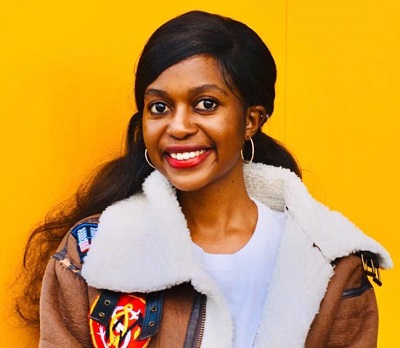
Samiiha Nalwooga is a final year student pursuing a master’s in Computer and Systems Sciences at the Department of Computer and Systems Sciences, Stockholm University. She has skills in Machine Learning, Data Analysis and Visualization, 3D printing, research, medical equipment repair, servicing and maintenance. Her research interests include Machine Learning, Deep learning and Data Science. She holds a bachelor’s degree in Biomedical engineering from Makerere University. She has certifications including Android mobile app development Certification from Google and Women Tech Entrepreneurship and Leadership certificate from Andela.

Rose has research interests in Computer Vision and Machine learning and applying these for automated microscopic diagnosis and spatial modeling of diseases in low resourced countries.

Entrepreneur, software developer and research scientist with a demonstrated history of working with startups in the ICT industry, big software development and collaborative research projects, driven by the use of Data science, Artificial intelligence and blockchain techniques to address social challenges in developing countries for sustainable development

Isaac's passion is in the field of software defined networks, machine learning, deep learning and big data analytics. He has researched in cognitive radio networks, Internet of Things (IoT), cloud computing, social media and e-commerce. Isaac is currently researching in employing Cognitive Radio networks with Internet of Things to collect data from natural phenomena, whose data is hosted over a secure cloud platform and processed in real time.

Nsubuga Hassan is Software Developer with deep love for Machine Learning. He is the founder and CEO at Hansu Mobile and Intelligent Innovations, a start-up pushing the limits of Mobile and AI/ML based in Mbale, Uganda.

I am a data scientist and project manager, enjoying working in the dynamic space of AI in Africa. I pride myself on my critical thinking, quick problem solving, and empathy. I enjoy connecting with people in their industries, sharing my experiences and learning from theirs.
In Uganda there are quite few researchers working on different aspects of artificial intelligence from machine learning, algorithms, logic-based and scientific computing perspectives. INDABAXUG is intended to bring together researchers, industry and academia interested in these areas of AI.
The central theme of INDABAXUG is combinations of, and synergies between, machine learning and symbolic AI. The workshops will focus on recent trends, aiming at finding common ground and interests that point forward to the coming years.
The outcome of the workshops will ideally be to identify where the field as a whole is heading and to pinpoint how we can use the competences in Uganda to exploit the potential synergies and stay at the front in research, teaching and industrial collaboration.
Please send us an email at
indabax@utamu.ac.ug, cbabirye@utamu.ac.ug, bssekiwere@utamu.ac.ug

Deep Learning IndabaX-Ug is a locally-organized
conference that seeks to spread knowledge and
capacity in Machine Learning across the African
continent. Deep Learning events bring together
students, researchers and industry experts who
are passionate about the field of Artificial
intelligence and its growth.
Since 2018, a total of 39 IndabaX events have been
organized in different countries across Africa,
growing the community by over 2,000 attendees.
The conference will be hosted by Uganda Technology and Management University (UTAMU)
and over 300 participants are expected
to be part of this event that will take place
in Kampala, Uganda at Silver Springs Hotel, Bugolobi. The conference will have three major sections: Tutorials (26th-28th, July 2021), Hackathon (29th, July 2021) and Conference (Invited Talks, Spotlights Talks, Poster Session, Exhibition) Day (30th, July 2021).
The conference will provide an opportunity for
researchers and practitioners to share their
understanding and use of Artificial Intelligence
(AI), in solving societal problems, as well as
to look at possibilities for setting-up new
trends in this area under the theme,
The social Impact of AI"
Furthermore, there will be an online hackathon
provided by Zindi (a data science competition platform with the mission of building the data science ecosystem in Africa) for country engagement.